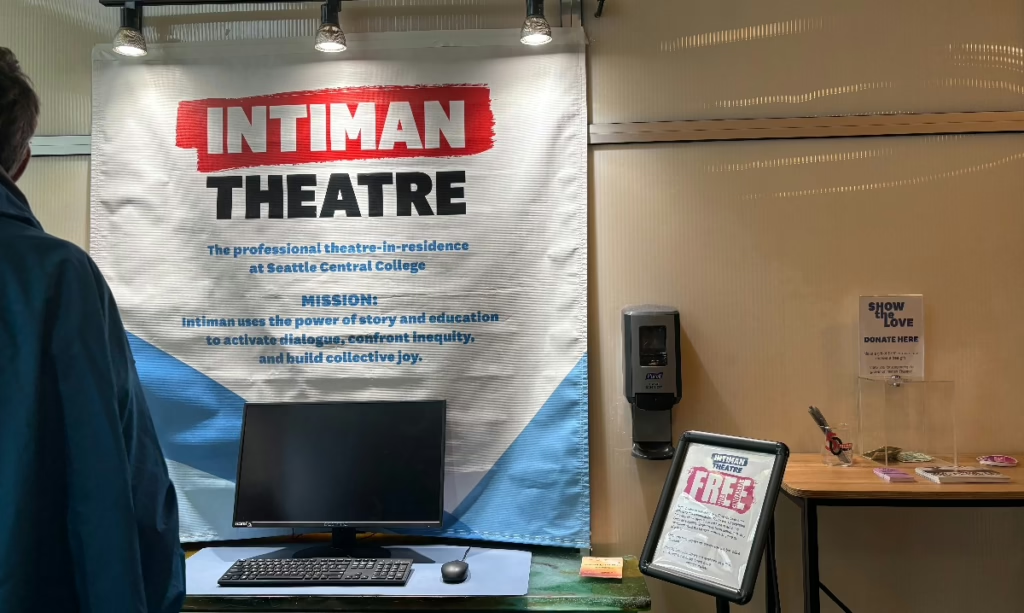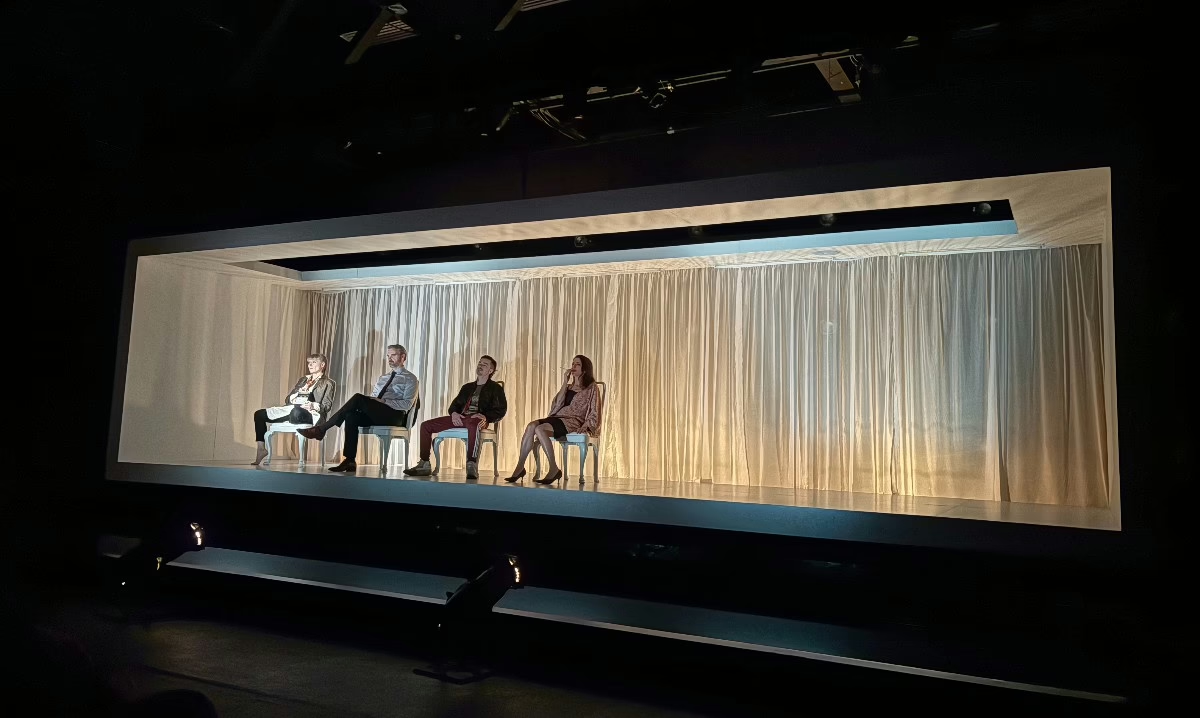Intiman Theatre presents a poignant portrayal of love, loss, desire, and despair through spoken word and a powerful performance. “CRAVE” was written by Sarah Kane, and originally brought to life in 2005. The production explores “human vulnerability, resilience, and the relentless search for connection amidst chaos,” as described by artistic director Jennifer J. Zeyl. This intimate experience is available to audiences until March 2, 2025.
In an interview, Zeyl revealed that first bringing Kane’s production to life 20 years ago was a “transformative experience—a raw exploration of the human psyche that felt both intimate and universal. Twenty years later, I felt it was the right time to revisit the piece because its themes remain deeply resonant in our current world.”
The play takes place within a literal box and a metaphorical state of mind. Zeyl envisioned the setting of the performance to represent a “purgatory of the psyche,” emphasizing the inner torment of the characters. Their dialogue unfolds simultaneously, intersecting with one another, yet each line carries profound individual experience–feelings of torture and anguish–confined by the limitations of the mind and the longing for love.
Each character begins with a dialogue about who they present themselves to be, describing only the surface of who they are while hinting at the complexities within. One woman begins by talking about “not remembering, yet never being able to forget,” alluding to a dark memory from her past. Another expresses a longing for a child, for love, while taking drags from a lit cigarette. A man in a suit presents himself with formality, yet hints at subtle signs of despair beneath the surface. A younger man yearns to be loved by an older woman. These four characters, unrelated yet interconnected, delve into the depths of their psyches, expressing raw, uncensored emotion through poetic language.
In the span of the 55-minute production, the audience comes to understand the inner traumas and personal demons each character has learned to live with. The woman who couldn’t remember, yet couldn’t forget, describes herself as an “emotional plagiarist,” unable to distinguish her own feelings from those of others–absorbing emotions that don’t belong to her, pretending that they are her own. The man who presents with so much formality breaks down in tears, longing for the love that nearly destroyed him. The woman longing for a child expresses her deep loneliness and an inability to trust anyone, especially men. Meanwhile, the man who yearns to be loved by an older woman seeks to rid himself of the feelings stopping him from really living.
The production unveils the intensity of emotions within the human experience, exploring stories of anguish, pain, desire, regret, and longing. When asked what Zeyl hopes the audience takes away from the performance, she replies, “I hope the audiences leave with a deeper understanding of human fragility and resilience. The work invites introspection and dialogue.”
Director Roger Benington advises the audience to “view the play as one would a symphony or dance concert, allowing the sounds and movement and images simply to wash over you. It’s almost by giving up that the play starts to work its magic.”
By giving up trying to make sense of the personal stories and exclamations, viewers are given space to feel the raw emotion being undressed on stage, rather than intellectualizing the possible meaning behind the poetic stream of words. This surrender allows the play to wash over the audience, bypassing logic and inviting a deeper, emotional experience. The performance concludes with an almost ritualistic metaphor of washing away pain, as water lies still at the bottom of the stage, waiting for the closing scene. The performance ends as the characters step into the stillness of the water, allowing it to wash away their hurt, cleansing themselves of the anguish and chaos that has just unfolded on stage–reminding the audience that sometimes profound resolutions lie not in understanding, but in release.








Be First to Comment